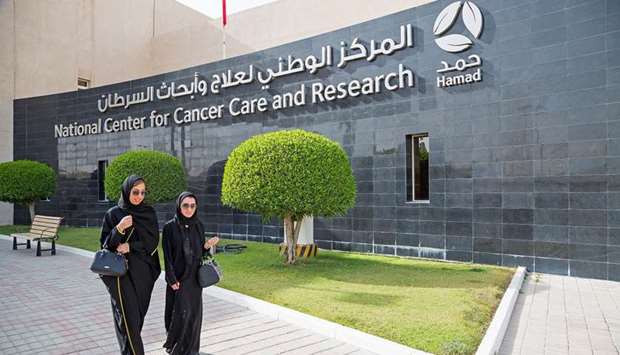Qatar’s first high-risk genetic oncology screening clinic, located at the National Centre for Cancer Care and Research (NCCCR) - a member of Hamad Medical Corporation (HMC) - has seen an increase in the number of individuals visiting the clinic since it first opened in 2013.
Since it was established in 2013, more than 2,500 patients have been assessed at the clinic, with around 60% being diagnosed with cancer.
The clinic, which is part of the NCCCR’s Cancer Genetics and Genomics Medicine programme, provides genetic counselling and testing services to individuals who are concerned about their cancer risk because of a personal and family history.
The programme is the first of its kind in the region and was established to care for those who have a higher risk of developing cancer during their lifetime due to hereditary factors. The programme is supported by a multidisciplinary team of oncology, genetic counselling, and molecular genetics laboratory specialists, as well as a number of international genetics laboratories.
Dr Salha Bujassoum, senior consultant at the NCCCR and director of the Hereditary Cancer and High-Risk Screening Programme, said the multidisciplinary clinic aims to identify patients at risk of developing the disease due to young-onset diagnosis, a strong family history, or a positive genetic test result.
“Advances in the field of genomics and precision medicine means that the Cancer Genetics and Genomics Medicine programme is becoming a core part of the care offered to patients and their families in Qatar. Ours is the first programme of its kind in the Middle East and has not only helped to establish HMC as a leader and innovator in patient and family-centred care but also as a model for enhanced patient care that other countries in the Middle East can follow,” said Dr Bujassoum.
“In addition to providing direct care, by developing clinical practice guidelines and educational sessions for clinicians and healthcare workers about hereditary cancers, the programme also includes an educational element. It features a number of educational meetings and research projects related to the many diverse aspects of cancer,” added Dr Bujassoum.
Dr Reem Alsulaiman, board-certified genetic counsellor, explained that while the cancer genetics programme primarily focuses on patients at risk of developing hereditary breast and ovarian cancers, it has been expanded in recent years. She says the service now provides care to patients with a higher than normal risk of developing other types of cancers, including hereditary etiology, such as gastrointestinal, endocrine, gynecological, dermatological, urological, hematological, as well as a number of rare cancers.
Late last year, the initiative gained international attention when a scientific research paper highlighting Qatar’s establishment of the program was published in the prestigious academic publication – the Molecular Genetics and Genomics Medicine Journal. The article was peer-reviewed by an international editorial board of experts in diverse areas of human and medical genetics and genomics.

